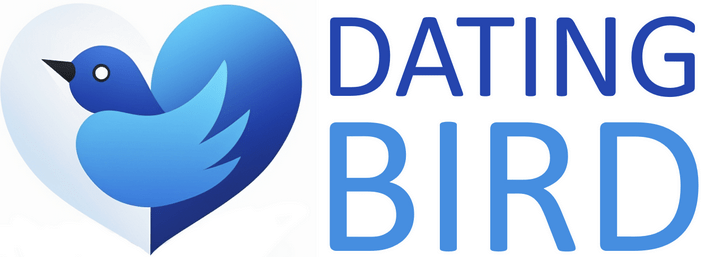In the realm of online dating, "Fake" refers to deceptive profiles or actions that misrepresent a user's true identity, intentions, or characteristics, often created to exploit unsuspecting users for personal, financial, or emotional gain.


A Comprehensive Explanation of "Fake" in Online Dating
In the digital landscape of online dating, the term "Fake" takes on a multi-faceted meaning. It primarily refers to the creation of deceptive profiles, wherein individuals falsify their personal information, such as age, occupation, or physical attributes. This can be done for various reasons, ranging from harmless pranks to more malicious intents like fraud or catfishing.
Another manifestation of "Fake" is through misleading actions, where users pretend to have certain interests or feelings to attract potential matches. This could serve the purpose of gaining attention, exploiting others' emotions, or even luring unsuspecting users into scams.
"In the context of online dating, 'Fake' is a critical concern as it involves the deliberate misrepresentation of one's identity or intentions."
Moreover, the use of fake or stolen photos is another common practice, often aimed at creating a more attractive or appealing online persona. This, again, can lead to potential harm or disappointment when the truth is revealed.
In essence, the concept of "Fake" in online dating encompasses any form of deceitful representation or behavior that can potentially harm or mislead other users.
Real-life Examples of "Fake" in Online Dating
In the context of online dating, the term "Fake" can take on various forms and instances. One classic example is the creation of phony profiles. These are profiles that are deliberately designed with false information, from fictitious names and fabricated interests, to deceptive age and location details. This is often done with the intent to deceive or manipulate other users.
"The creation of phony profiles serves as a classic example of 'Fake' in the realm of online dating."
Another prevalent example is catfishing. This involves an individual creating a fake online identity, and then luring another user into a relationship under false pretenses. Such instances can lead to emotional distress for the victim, and in some cases, financial loss.
Finally, there is the issue of bots. These are automated profiles that interact with users to simulate human conversation. While some dating platforms use bots for benign purposes such as customer support, others may employ them to engage users and artificially inflate the platform's user base.
In essence, "Fake" in online dating encompasses a wide range of deceptive practices, all of which can potentially undermine the trust and authenticity that are crucial to the online dating experience.
What Really Matters in Identifying "Fake" in Online Dating? Or Not?
In the multifaceted realm of online dating, identifying "Fake" elements is a nuanced process that involves several key factors. Firstly, profile authenticity is a primary indicator. This refers to the genuineness of the information provided in a user's profile, which can include photos, interests, and personal details. Secondly, user behaviour plays a significant role. This refers to patterns of interaction, response time, and the quality of messages sent. Thirdly, consistency between the user's profile information and their behaviour can also be a telltale sign.
"Identifying 'Fake' in online dating is a nuanced process that involves profile authenticity, user behaviour, and consistency."
However, it is important to note that these criteria are not foolproof. They are merely tools that can aid in the discernment process, but they do not guarantee absolute accuracy. This is because the concept of "Fake" in online dating is inherently complex and multifaceted, often blurring the lines between genuine and deceptive behaviours.
- Profile Authenticity: Genuineness of the information provided in a user's profile.
- User Behaviour: Patterns of interaction, response time, and the quality of messages sent.
- Consistency: Alignment between the user's profile information and their behaviour.
Why is Recognizing "Fake" in Online Dating So Important? Or Not?
Recognizing "fake" in the realm of online dating is crucial due to the potential repercussions of interacting with a fraudulent profile. The world of online dating, much like the rest of the internet, is rife with duplicity and deception. Misrepresentation can range from mildly innocuous, such as using a profile picture from a decade ago, to more malicious actions like catfishing – creating a wholly fictitious identity to deceive others for personal, financial, or psychological gain.
"The ability to discern 'fake' from 'real' in online dating is essential to safeguard one's emotional, financial and even physical well-being."
Furthermore, the existence of "fake" profiles can significantly dilute the quality of an online dating platform, discouraging genuine users and undermining trust in the service. The prevalence of "fake" profiles can also skew the platform's user demographics and statistics, impacting its credibility and effectiveness. Therefore, understanding and recognizing "fake" in online dating is not just beneficial for individual users, but also for the health and integrity of the online dating ecosystem as a whole.
What are the Challenges in Identifying "Fake" in Online Dating?
Despite the increasing sophistication of verification methods, identifying "fake" profiles in online dating remains a daunting task. The challenges stem from a variety of factors. Firstly, the anonymity provided by the internet allows individuals to easily misrepresent themselves, creating fictitious profiles with altered identities. Secondly, the technological advancements have made it more effortless to generate convincing fake photos and profiles, further complicating the identification process.
"The internet's anonymity and technological advancements have made it easier to create convincing fake profiles, complicating the identification process."
Moreover, online platforms often lack effective mechanisms to verify the authenticity of personal details, thereby making it easier for "fake" profiles to proliferate. Additionally, the sheer volume of users on popular dating platforms can make it logistically challenging to monitor and verify each profile. Lastly, the subjective nature of personal descriptions can also make it difficult to discern factual information from embellishment or deception.
In essence, the task of identifying "fake" profiles in online dating is a complex and multifaceted challenge, requiring a combination of vigilance, technological solutions, and critical thinking skills.
How Does "Fake" in Online Dating Differ from "Fake" on Social Media?
In the sphere of online communication, "fake" holds varying connotations across different platforms. In online dating, "fake" largely refers to profiles intentionally created with misleading information, often fabricated for various motives such as scamming, catfishing, or even data harvesting. The objective is usually to deceive other users for personal gain or amusement. On social media, "fake" can also imply the creation of false identities. However, it encompasses a broader scope, including disinformation or 'fake news,' where posts or shares are not based on factual information. This can lead to widespread misinformation and can have significant consequences. While both contexts involve deception, the implications and the scale of impact differ significantly. Therefore, understanding the nuances of "fake" across different online platforms, including online dating and social media, is crucial to navigate safely in the digital world, especially for the tech-savvy Canadians.
FAQ
Question: What does 'Fake' mean in the context of online dating?
Question: Can you give an example of 'Fake' in online dating?
Question: How can I identify 'Fake' profiles in online dating?
Question: Why is it important to recognize 'Fake' profiles in online dating?
Question: What are the challenges in identifying 'Fake' profiles in online dating?
Question: How does 'Fake' in online dating differ from 'Fake' on social media?
Related articles
Articles with related questions
Written by:
 Sophia
Sophia focuses on how-to articles.
Since she studied psychology, Sophia has been concerned with the best criteria for matching people in online dating so that a relationship lasts for a really long time. In their opinion, an important factor is sincerity when filling out the profiles. This is the only way to ensure that you are not rejected at the first meeting.
Sophia
Sophia focuses on how-to articles.
Since she studied psychology, Sophia has been concerned with the best criteria for matching people in online dating so that a relationship lasts for a really long time. In their opinion, an important factor is sincerity when filling out the profiles. This is the only way to ensure that you are not rejected at the first meeting.
